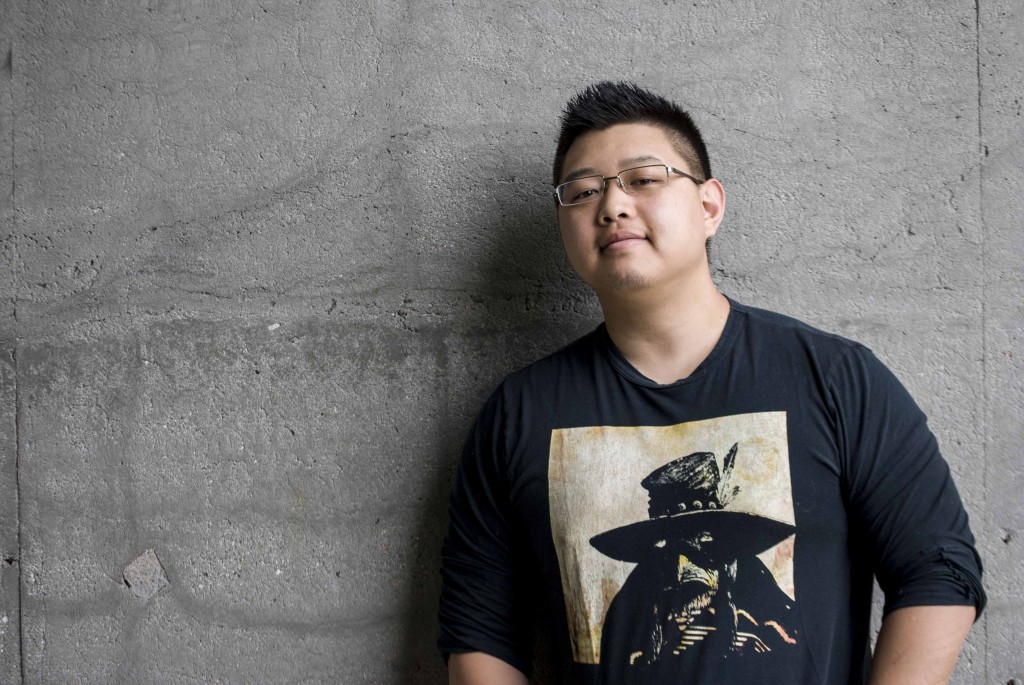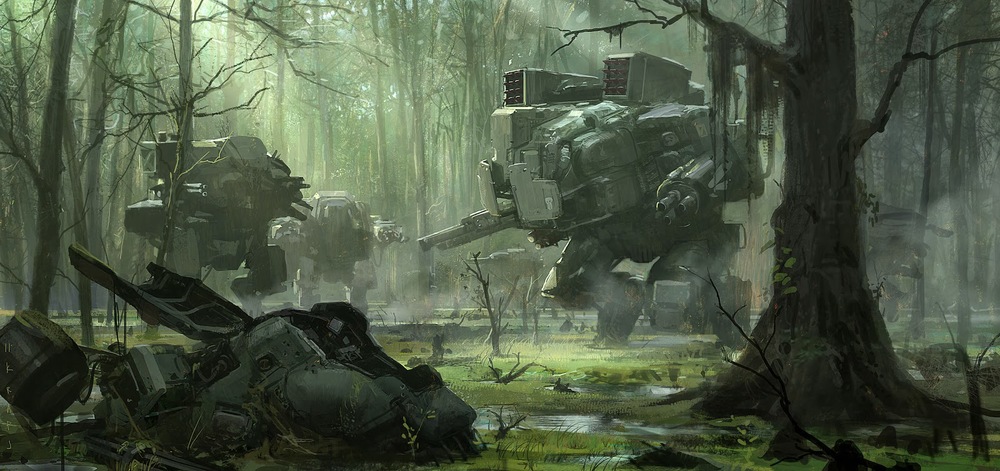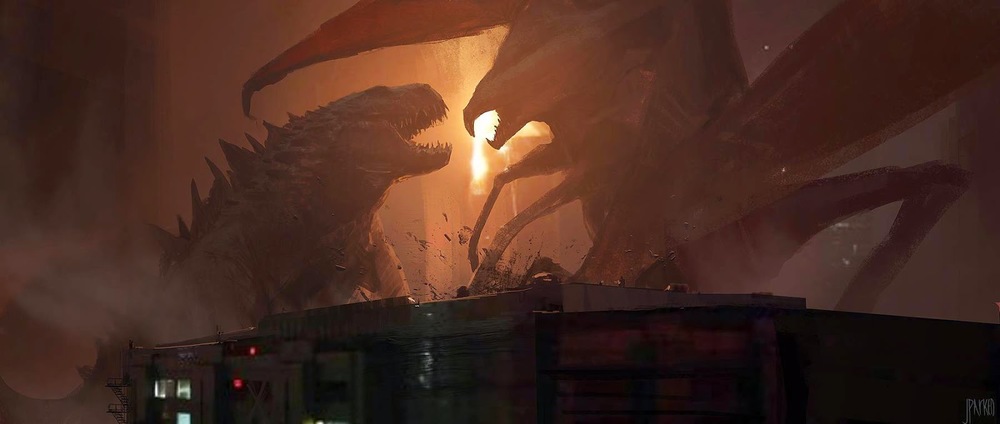- California Assembly OKs highest minimum wage in nation
- S. Korea unveils first graphic cigarette warnings
- US joins with South Korea, Japan in bid to deter North Korea
- LPGA golfer Chun In-gee finally back in action
- S. Korea won’t be top seed in final World Cup qualification round
- US men’s soccer misses 2nd straight Olympics
- US back on track in qualifying with 4-0 win over Guatemala
- High-intensity workout injuries spawn cottage industry
- CDC expands range of Zika mosquitoes into parts of Northeast
- Who knew? ‘The Walking Dead’ is helping families connect
Hollywood mindreader: Artist John Park puts James Cameron’s imagination on screen

Concept artist John Park has played a key role in the production Hollywood blockbusters including “Godzilla” (2014), “Transformers: Age of Extinction” and now the upcoming “Avatar” sequels. (Brian Han/Korea Times)
By Brian Han
Mindreaders.
That’s how concept artist John Park playfully describes himself and others who work in his field.
The 29-year-old has sharpened up his craft to the point where A-list directors like James Cameron (“Avatar,” “Titanic”), Michael Bay (Transformers) and Gore Verbinski (“Pirates of the Caribbean,” “Rango”) are seeking him out to help put their imaginations onto the silver screen.
Although the execution can be complicated, the process is simple to describe.
“For example, if a director or a writer has an idea and they have a hard time visualizing it, they’ll start describing an idea, a mood, a feeling, whatever,” Park said. “We’ll take those keywords and begin to paint a picture.”
His latest projects in the film industry happen to be some of the most ambitious work stirring in Hollywood today, and luckily he’s working among an all-star team with Cameron at the helm.
Park and five other concept artists — including art directors Dylan Cole (“Lord of the Rings”) and Ben Procter (“Transformers”) — have been tasked with designing the characters, creatures and environments of the next three “Avatar” sequels.
Cameron is known to stress realism and detail in the fantastic worlds he creates. The fact that the original film took seven years to make is a testament to his dedication.
As daunting as a time frame as that may seem to most others, Park had one unequivocal response when he was offered a job at James Cameron’s production company Lightstorm Entertainment just over a year ago.
“I literally just quit everything I was doing at the time and said, ‘I’m there tomorrow,’” he recalled. “I remember when the first ‘Avatar’ came out, I was still in school and I was just blown away by what I was seeing.”
So far the experience has been unlike anything he’s ever done before, but then again, every director he’s worked with shares their own set of unique qualities.
“Michael Bay is so energetic, he likes action, action, action,” Park said. “Gore Verbinski is such a fun guy, he was really comedic and loose. But James Cameron is just so scientific. He’s about precise calculations, yet he’s so creative at the same time. I think the best part is how collaborative he is. You can tell he really enjoys working with other artists.”
Even though three “Avatar” sequels are slated for future release, they are each being handled one at a time as opposed to other major production companies like Marvel Studios who dedicate a small team of concept artists to work on multiple films at once.
This approach probably better suits Cameron’s workflow and emphasis on detail according to Park.
“So we’re handling each movie separately and it’s been an interesting creative journey to say the least,” he said describing his time so far on the projects. “Imagine starting from scratch and designing a city. There’s buildings and streets in the background. But we also handle details like what’s inside each building, what’s inside of each room, who are the people in these rooms, what do they look like, what’s their background. It gets to such a deep level.”
Park admits that the most gratifying part of the job comes at the end of the process when he gets to see both his team’s hard work come to life and his name during the credits.
But there’s another side to Park that taps into his love for visual art that isn’t in the form of Hollywood blockbusters.
It’s his role as a teacher.

Park played a vital role for the design in 2012 video game “Hawken,” which went on to win 12 awards at the annual Electronic Entertainment Expo (E3).
Park not only teaches at his alma mater Art Center College of Design, but he also opened up a small school called Brainstorm with another artist James Paik within the last year.
It’s been a hit since its inception with students enrolling from different countries around the world and flying into Southern California to attend.
“Our school is different in that we teach a certain thinking skill set as opposed to drawing technically, because so many other schools do that already and do it well,” he said. “We help students understand not how to make something look good, but why it looks good and using that to push their creativity.”
As abstract as that sounds, whatever they’re teaching is working well as his students have gone on to work for Industrial Light & Magic (“Star Wars”) and Riot Games (“League of Legends”) to name a few.
“Just that idea of ‘I taught you something and you took it to heart and succeeded,’ makes me so proud,” he said.
During his time as both a professional concept artist and teacher, he’s seen a demographic shift in the types of students who have decided to pursue a similar career.
“Concept art is still a new field, probably about seven years old,” he said. “But now you see a lot more people coming to study just that and I’ve seen a lot of Korean Americans and international students wanting to get into that field right off the bat. That’s something you might not have seen as much of a decade ago.”
Park was raised in a family of artists, so it was never really about breaking out of stereotypical career choices.
His father designed the interiors of cathedrals and churches before moving to the U.S. from South Korea and his brother ended up going into product design. Both of them inspired Park at an early age.
“I was academically not the strongest in the family with my 2.0 GPA,” he said while laughing. “Honestly I knew what I wanted to do when I was around eight years old. My dad was pretty open minded about the whole idea of me becoming an artist.”
Despite what seemed like a laid back attitude toward his son’s career choice, his father made sure he developed the right perspective to guide him towards success.
“He believed really strongly in hard work so he would constantly ask me what’s your one-year plan, what’s your five-year plan, what’s your ten-year plan?” Park said. “As much as I didn’t like hearing those questions at the time, it truly did help me value the importance of making a living with what I do professionally.”
Now he’s one of Hollywood’s most sought after concept artist although he admits his family still has trouble wrapping their heads around exactly what he does.
“To my family, I’m still a graphic designer, they don’t really know what I do,” he said with a grin.
Maybe it would be easier to tell them that he’s some kind of professional mindreader.
















